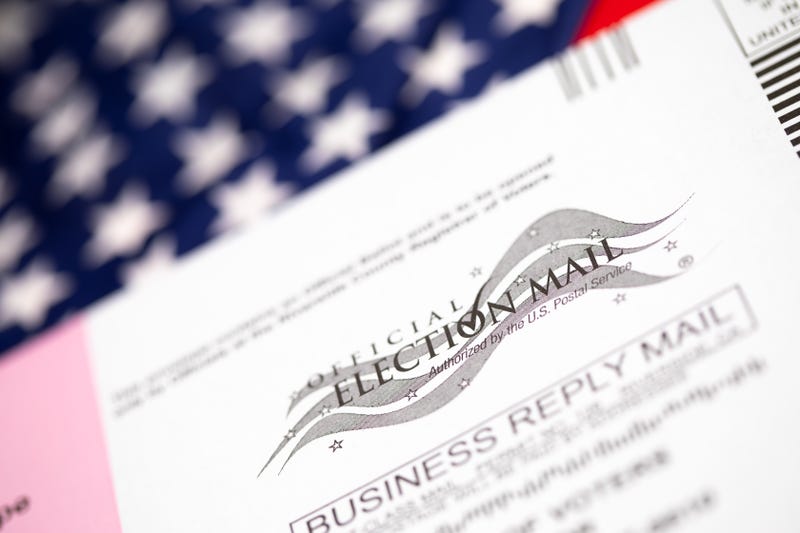
California state senators passed a bill Thursday that would require county elections officials to mail ballots to every active voter for future elections. The bill would also allow voters to track their ballots.
Before 2020 and the pandemic crisis, by-mail ballots had to be specifically requested by voters.
AB 860, a bill passed last June, was the first suggestion of this type of elections system - implemented primarily to assist voters during the COVID-19 pandemic. The bill requires by-mail ballots to be sent to every registered vote for all elections through Jan. 1, 2022.
Assemblyman Marc Berman introduced Assembly Bill 37 to continue the vote-by-mail process beyond that deadline and make changes to the vote by mail processes.
In notes from the bill’s analysis, Berman cited data from the Secretary of State's office to point out that about 90 percent of California’s registered voters already receive a ballot in the mail.
“75 percent of voters (over 16.5 million) were registered as permanent vote-by-mail voters for the November 2020 general election,” he wrote.
“Additionally, 15 counties have chosen to conduct elections pursuant to the California AB 37 Page 2 Voter's Choice Act, which requires an elections official to mail every active registered voter a ballot, and three counties conduct elections entirely by mail.” The bill passed the state Senate in a 30-7 vote.
If passed by the Assembly, AB 37 would require all counties that do not conduct an all-mailed ballot election to provide at least two vote-by-mail drop-off locations, or at least one drop-off for every 30,000 registered voters.
In a jurisdiction with fewer than 30,000 registered voters, the bill would require at least one vote by mail ballot drop-off location.
Opponents of the bill include the Election Integrity Project California, Inc., an organization founded by a former Santa Clarita tea party activist that trains volunteers to observe polling locations. The group took issue with the number of days that by-mail ballots would have to be accepted.
Under existing law, a by-mail ballot is considered timely if it is received by elections officials no later than three days after election day. AB 37 would extend that to seven days.
“Vote-by-mail voters have at least three weeks to fill out and mail a ballot and post their ballot as early as necessary for timely arrival,” EIPCa said. “Introducing an additional four days for 'timely arrival' is a gift to would-be bad actors and a threat to election integrity.”
Senate Republicans had a similar issue with the bill and said continued use of by-mail ballots could lead to an increase in cases of voter fraud.
The California Globe shared one instance brought up by Fresno Republican Sen. Andreas Borgeas.
“Borgeas noted several recent incidents in the recall election that could lead to voter fraud, such as a Torrance felon found with 300 unopened ballots and numerous cases of multiple ballots being sent to voters,” the Globe reported. “The latter actually happened to many lawmakers in attendance on Thursday, including Borgeas.”
In response to Borgeas, democrats downplayed possible fraud and noted that the Torrance man was an isolated incident, the Globe reported. They also pointed out that all by-mail ballots have a tracking bar code, which would allow only one vote per person.
Analysis of recent data from three vote-by-mail states indicated just 372 possible cases of voter fraud - consisting of double voting or voting on behalf of a deceased person. That number is out of about 14.6 million by-mail votes cast between 2016 and 2018. The possible cases of voter fraud account for 0.0025 percent of all the votes cast by mail during the two-year period.
The data was analyzed by the Washington Post, with help from the Electronic Registration Information Center, a nonprofit that helps states improve the accuracy of voters rolls in the U.S. Figures were from cases reported to law enforcement agencies in Colorado, Oregon and Washington.
AB 37 will next go to the Assembly for final passage before it is sent to Governor Gavin Newsom for approval.

